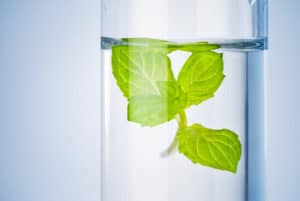At the Institute for the Advancement of Food and Nutrition Sciences research serves as the foundation for our actions. See our current grant opportunities below.
Current Opportunities:

Scientific integrity is a core value of IAFNS. Learn how we embed scientific integrity into every step of our research process.
Projects Funded by IAFNS:
IAFNS's mission is to advance food safety and nutrition science for the benefit of public health. View projects funded by IAFNS below, and learn how we embed scientific integrity into every step of our research process.
Identifying Genomic and Microbiome Influence on Response to Dietary Interventions for Improved Lipid Parameters
Metabolic syndrome, whose clinical manifestations include central obesity, hypertension, dyslipidemia, and elevated glucose levels, results in greatly increased risk of developing cardiovascular disease and diabetes. Changes in diet and physical activity can prevent and even reverse manifestations of metabolic syndrome, but current dietary recommendations fail to account for important factors, such as the individual’s genome […]
Sodium and Potassium in the Food Supply: A Model to Predict Intakes and Health Outcomes
The dietary sodium-to-potassium ratio is shown to be more strongly associated with an increased risk of cardiovascular disease (CVD) and CVD-related mortality than either sodium or potassium intake alone. The aim was to estimate the sodium-to-potassium ratio in the diet of US adults. Institution: USDA Agricultural Research Service Principal Investigator: Alanna Moshfegh, MS, RD Amount Awarded: […]
Trans Fatty Acids and Cholesterol Levels: An Evidence Map of the Available Science
The aim of this project is to characterize the existing literature regarding intervention trials on industrial trans fatty acid intake as a substitute for cis-monounsaturated fatty acids or saturated fatty acids and resulting changes in LDL- or HDL-cholesterol. Institution: Biofortis Principal Investigator: DeAnn Liska, PhD Year Awarded: 2014 Read more: Trans fatty acids and cholesterol […]
Correlation of Surrogate Bacteria and Salmonellae for Validation of Spice/Herb Pathogen Reduction Processes
Spices and herbs are obtained from plants that are grown in open fields and later subjected to a drying process that often involves sun drying in open environments. Therefore, bacterial pathogens are likely to be present in these products. Despite implementation of preventive measures, outbreaks of foodborne disease and recalls have been linked to spices. […]
Development of a Fiber Database and Evidence Map
Thousands of studies have been completed on a wide range of fiber and fiber-rich foods examining a wide range of health outcomes. The aim of this project is to develop a comprehensive database of fibers to enable efficient conduct of systematic evidence reviews linking specific fibers and fiber sources with high potential human health outcomes. […]
Protocol and Surrogate Validation for the Inactivation of Salmonella on Spices
Worldwide, spices are used to enhance the flavor of foods. In many cultures, spices are considered ready-to-eat and are added to foods after cooking, creating some risk for consumers if the spices have been contaminated with human pathogens. Several outbreaks of foodborne illness, associated with the consumption of spices have occurred; furthermore, numerous recalls of […]
Low-Calorie Sweeteners and Body Weight and Composition
Replacement of caloric sweeteners with lower- or no calorie alternatives may facilitate weight loss or weight maintenance by helping to reduce energy intake. However, past research examining the relationship between low-calorie sweeteners (LCSs) and body weight has produced mixed results. The aim of this study was to systematically review and quantitatively evaluate randomized controlled trials […]
Toxicology and Risk Assessment of Chemical Mixtures
The IAFNS Food and Chemical Safety Committee invests in the training and education of future scientists and leaders in the fields of food and chemical safety and food toxicology by supporting a Summer Fellowship Program for doctoral students. This project focused on Toxicology and Risk Assessment of Chemical Mixtures. Institution: University of Cincinnati Summer Fellow: […]
Nutrition-Toxicity Interactions in Daphnia pulex: Developing an Alternative Model Organism for Early Life Exposures
As a well-known eco-toxicological model organism, Daphnia pulex may also offer advantages in human health research for assessing long-term effects of early life exposures to coupled stressors. This study will serve as a proof-of-concept for the use of Daphnia pulex as a screening model organism for long-term effects of exposure to multiple stressors in early […]
Future Research Needs Assessment for Fructose/Sugar and Health Outcomes
The aim of this project is to identify research gaps and prioritize research needs related to dietary sugars and potentially related health outcomes. Institution: Tufts University Principal Investigator: Mei Chung, PhD Year Awarded: 2013 Read more: Research needs and prioritizations for studies linking dietary sugars and potentially related health outcomes Learn more about the IAFNS Carbohydrates […]
Forging an Understanding of the Double-Edged Iron Sword and Immunity
Upon infection, the host and pathogen compete to acquire, utilize and store essential iron. The goal of this project is to understand how iron nutrition contributes to infectious disease pathogenesis and clinical outcomes. This information can be utilized to determine how to best intervene in regions with high dual burdens of iron deficiency malnutrition and […]
Evaluation of Food-Relevant Chemicals in ToxCast Phase II
The IAFNS Food and Chemical Safety Committee invests in the training and education of future scientists and leaders in the fields of food and chemical safety and food toxicology by supporting a Summer Fellowship Program for doctoral students. This project focused on the Evaluation of Food-Relevant Chemicals in ToxCast Phase II. Institution: Michigan State University […]
- « Previous
- 1
- …
- 8
- 9
- 10









